 W
WThe Advance Arkansas Institute (AAI) is a free market think tank located in Little Rock, Arkansas. The organization's stated mission is "to advance public policy based on free markets, individual liberty, and limited, transparent government." The Institute is headed by Dan Greenberg, a former Arkansas State Representative.
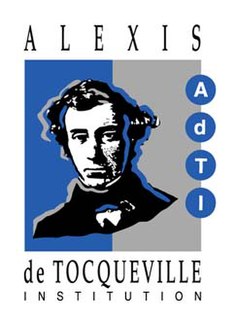 W
WThe Alexis de Tocqueville Institution (AdTI) was a Washington, D.C. based think tank.
 W
WThe American Institute for Economic Research (AIER) is a Libertarian think tank located in Great Barrington, Massachusetts. It was founded in 1933 by Edward C. Harwood, an economist and investment advisor. It is a 501(c)(3) nonprofit.
 W
WThe Association for Liberal Thinking is a Turkish classical liberal, non-profit, non-governmental organization. ALT does not involve in daily politics and have no direct links with any political party or movement.
 W
WAtlas Network, formerly known as the Atlas Economic Research Foundation, is a non-governmental 501(c)(3) organization based in the United States that provides training, networking and grants for libertarian and free-market groups around the world.
 W
WThe Beacon Center of Tennessee, formerly the Tennessee Center for Policy Research (TCPR), is a non-profit free-market think tank based in Nashville, Tennessee. The Center's research areas include tax and economic policy, education policy, and healthcare policy. The organization is a member of the State Policy Network.
 W
WThe Bruno Leoni Institute, named after philosopher and scholar Bruno Leoni, is an Italian libertarian think-tank promoting classical liberal ideas in Italy and in Europe. It was founded in 2003 by three libertarian scholars Carlo Lottieri, Alberto Mingardi and Carlo Stagnaro. IBL organizes conferences, publishes books, briefings and academic papers, as well as assisting undergraduate and graduate students with their research work.
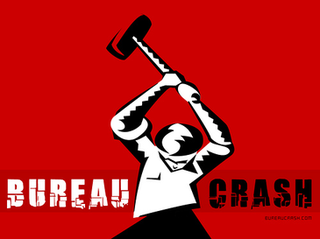 W
WBureaucrash was an international network of libertarian activists whose stated goals were "decreasing the scope of government" and "increasing individual freedom", and which engaged in culture jamming.
 W
WCascade Policy Institute is a non-profit and non-partisan American libertarian public policy research organization based in Portland, Oregon that focuses on state and local issues. The institute, founded in January 1991, seeks to "explore and advance public policy alternatives that foster individual liberty, personal responsibility, and economic opportunity". Although not aligned with any political party, the institute advocates policies that promote free markets and limited government.
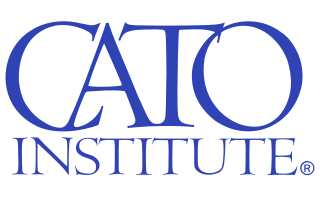 W
WThe Cato Institute is an American libertarian think tank headquartered in Washington, D.C. It was founded in 1977 by Ed Crane, Murray Rothbard, and Charles Koch, chairman of the board and chief executive officer of Koch Industries. Cato was established to have a focus on public advocacy, media exposure and societal influence. According to the 2017 Global Go To Think Tank Index Report, Cato is number 15 in the "Top Think Tanks Worldwide" and number 10 in the "Top Think Tanks in the United States".
 W
WThe Center for Individual Rights (CIR) is a non-profit public interest law firm in the United States. Based in Washington, D.C., the firm is "dedicated to the defense of individual liberties against the increasingly aggressive and unchecked authority of federal and state governments". The Center is officially nonpartisan. Its work focuses on enforcement of constitutional limits on state and federal power, primarily through litigation.
 W
WCentre for Public Policy Research (CPPR) is an independent non-profit research organization located in Kochi, India. It was established in the year 2004. It conducts professional research, integrating developments in the areas of education, livelihood, governance, urban reforms and environment. The four focus study centers are: CPPR Centre for Urban Studies, CPPR Centre for Comparative Studies, CPPR Centre for Strategic Studies and CPPR Academy.
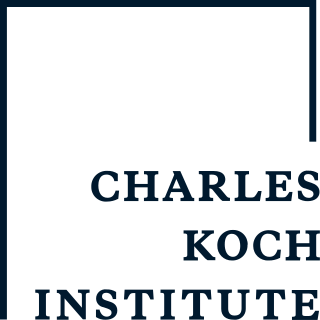 W
WThe Charles Koch Institute is a libertarian-oriented public policy research, programming, grant-making, and fellowship-funding organization based in Virginia. Named after Charles Koch, its founder and primary financier, it pursues conservative economic policies and a non-interventionist foreign policy that has been characterized as anti-neoconservative.
 W
WThe Committee for a Constructive Tomorrow (CFACT) is a Washington, D.C.-based 501(c)(3) nonprofit organization founded in 1985 that advocates for free-market solutions to environmental issues. According to its mission statement, CFACT also seeks to protect private property rights, promote economic policies that reduce pollution and protect wildlife, and provide an "alternative voice on issues of environment and development".
 W
WThe Commonwealth Foundation for Public Policy Alternatives is a think tank based in Harrisburg, Pennsylvania. It develops and advances fiscally conservative and libertarian public policies. The organization's stated mission is to "transform free-market ideas into public policies so all Pennsylvanians can flourish."
 W
WThe Competitive Enterprise Institute (CEI) is a non-profit libertarian think tank founded by the political writer Fred L. Smith Jr. on March 9, 1984, in Washington, D.C., to advance principles of limited government, free enterprise, and individual liberty. CEI focuses on a number of regulatory policy issues, including business and finance, labor, technology and telecommunications, transportation, food and drug regulation, and energy and environment in which they have promoted climate change denial. Kent Lassman is the current President and CEO.
 W
WThe Foundation for Economic Education (FEE) is an American conservative libertarian economic think tank. It is a member of the State Policy Network.
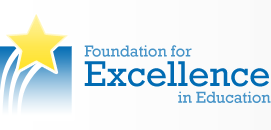 W
WThe Foundation for Excellence in Education is a think tank on education reform based in Tallahassee, Florida.
 W
WThe Foundation for Rational Economics and Education (FREE) is an American libertarian organization. It was founded in 1976 by U.S. Congressman Ron Paul, who led the organization.
 W
WThe Fraser Institute is a Canadian public policy think tank and registered charity. It has been described as politically conservative and libertarian. The institute is headquartered in Vancouver, with offices also located in Calgary, Toronto, and Montreal, and ties to a global network of 80 think tanks through the Economic Freedom Network.
 W
WThe Free Market Foundation (FMF) is a classical liberal think tank located in Bryanston, Johannesburg, South Africa. Founded in 1975, the FMF was established to further human rights and democracy through the principles of an open society, the rule of law, personal liberty, and economic liberalism and press freedom. According to The Mercury editor Fikile-Ntsikelelo Moya, the FMF is a "libertarian think tank" wanting "unfettered capitalism" which "eschews all forms of state intervention in the life of the individual citizen". In 1987, Leon Louw, the FMF's Executive Director, described the work of the FMF as follows:"We mobilise public opinion, we lobby, we fight government, any government, and make representations and submissions. Our objective is to create a climate of public opinion among politicians, radical groups and unions in favour of free markets."
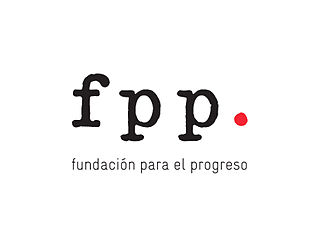 W
WThe Fundación para el Progreso is a libertarian think tank oriented to a massive public. Founded in 2012, its financist is Nicolás Ibáñez Scott whilst its historical icon is the political scientist Axel Kaiser, executive director of the foundation. Among other financists, the FPP has received aports from Quiñenco Group or the Luksic Foundation; since 2020, Ibáñez Scott has decreased his financial contributions to the institution.
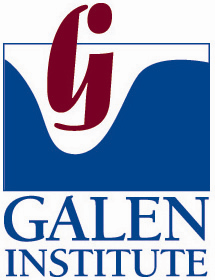 W
WThe Galen Institute is a non-profit public policy research organization based in Alexandria, Virginia. Founded in 1995 by Grace-Marie Turner, the Galen Institute's stated mission is "advancing free-market ideas in health policy, promoting a more informed public debate over ideas that support innovation, individual freedom, consumer choice, and competition in the health sector". The Institute's funding has primarily come from individual, foundation, and corporate contributions and grants.
 W
WThe Goldwater Institute is a conservative and libertarian public policy think tank located in Phoenix whose stated mission is "to defend and strengthen the freedom guaranteed to all Americans in the constitutions of the United States and all fifty states". The organization was established in 1988 with the support of former Senator Barry Goldwater.
 W
WThe Grassroot Institute of Hawaii is a 501(c)3 nonprofit public policy think tank based in Honolulu, Hawaii. The organization's stated mission is to "educate people about the values of individual liberty, economic freedom, and accountable government." It promotes free market values and produces research on subjects like the Jones Act and pension issues. The current Chief Executive Officer is Dr. Keli'i Akina. The Institute was formed on February 12, 2001 by Richard Rowland. The organization is a member of the State Policy Network, a network of state-based think tanks.
 W
WThe Heartland Institute is an American conservative and libertarian public policy think tank known for its rejection of the scientific consensus on climate change and the negative health impacts of smoking.
 W
WThe Illinois Policy Institute (IPI) is a libertarian nonprofit think tank with offices in Chicago and Springfield. Founded in 2002, it is active in the areas of education policy, pension policy, and state budget issues. IPI advocates for smaller government and lower taxes. It has an affiliated lobbying arm and legal arm. IPI is a member of the State Policy Network, a consortium of free-market think tanks in the U.S.
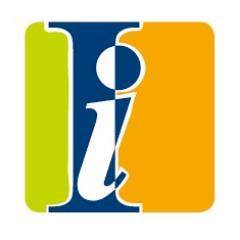 W
WThe Independence Institute (II) is a libertarian think tank based in Denver, Colorado. The group's stated mission "is to empower individuals and to educate citizens, legislators and opinion makers about public policies that enhance personal and economic freedom."
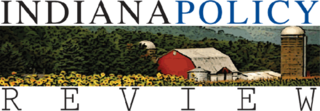 W
WThe Indiana Policy Review Foundation (IPR) is an Indiana fusion conservative and libertarian, free market think tank. According to its web site, the IPR’s mission is to "marshal the best thought on governmental, economic and educational issues at the state and municipal level." The IPR publishes the Indiana Policy Review. Based in Fort Wayne, Indiana, it is a non-profit, tax-exempt organization.
 W
WThe Institute for Democracy and Economic Affairs (IDEAS) is a Malaysian libertarian think tank dedicated to promoting market-based solutions to public policy challenges. It was founded on 8 February 2010. IDEAS is headquartered at Bukit Tunku, Kuala Lumpur.
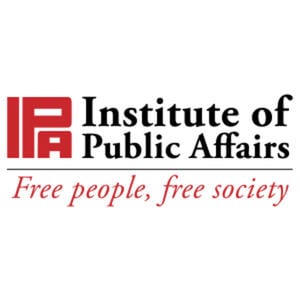 W
WThe Institute of Public Affairs (IPA) is a conservative non-profit free market public policy think tank based in Melbourne, Victoria, Australia. It advocates free market economic policies such as free markets, privatisation, deregulation of state-owned enterprises, trade liberalisation, deregulation of workplaces as well as climate change denial, abolition of the minimum wage, anti-socialism, and repeal of section 18C in the Racial Discrimination Act 1975.
 W
WThe Jerusalem Institute for Market Studies (JIMS) is an independent, nonprofit economic policy think tank whose mission is to promote social progress in Israel through economic freedom and individual liberty.
 W
WThe Lexington Institute is a think tank headquartered in Arlington, Virginia, United States. It focuses mainly on defense and security policy.
 W
WThe Libertarian Alliance (LA) refers to two libertarian think tanks in the UK. Originally one organisation, it split in 1982. One Libertarian Alliance was renamed "Mises UK" in 2017; the remaining Libertarian Alliance holds regular meetings in London.
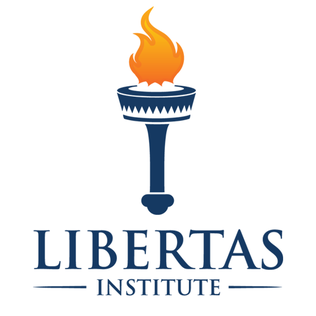 W
WThe Libertas Institute (LI) is a libertarian think tank located in Lehi, Utah. The organization's stated mission is "to advance the cause of liberty within the State of Utah." The Institute focuses on free market policies, private property rights, and civil liberties issues, including police reform.
 W
WThe Mannkal Economic Education Foundation is a free market think tank headquartered in Perth, Western Australia.
 W
WThe National Center for Policy Analysis (NCPA) was a non-profit American think tank whose goals were to develop and promote private alternatives to government regulation and control. Topics it addressed include reforms in health care, taxes, Social Security, welfare, education, and environmental regulation.
 W
WThe Pelican Institute is a free market think tank headquartered in New Orleans, Louisiana. Kevin Kane founded the Pelican Institute in 2008 and served as the organization's president until his death in 2016. The Pelican Institute's goals include increased government transparency, lower taxes, and improved schools. The Institute's stated mission is "to conduct scholarly research and analysis that advances sound policies based on free enterprise, individual liberty, and constitutionally limited government." The Pelican Institute publishes policy studies and commentaries via their news outlet, The Pelican Post. Issues addressed include health care, state and federal spending, energy, environmental issues, poverty, and corruption.
 W
WThe R Street Institute is an American conservative and libertarian think tank headquartered in Washington, D.C. The Institute's stated mission is to "engage in policy research and outreach to promote free markets and limited, effective government." R Street was established in 2012 when its founders split from the Heartland Institute out of disagreement with Heartland's public denial of the scientific consensus on climate change. In addition to its Washington headquarters, R Street has branch offices in Tallahassee, Florida; Columbus, Ohio; Sacramento, California; Boston, Massachusetts; and Round Rock, Texas.
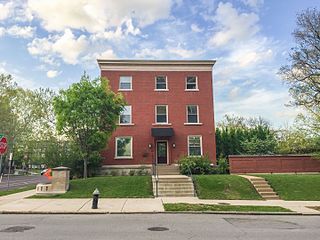 W
WThe Show-Me Institute, or SMI, is an American think tank based in St. Louis, Missouri that promotes public policies that advance free market principles. Founded in 2005, the organization focuses on economic and good governance issues in the state of Missouri. The stated mission of the Show-Me Institute is "improving the quality of life for all citizens of Missouri by advancing sensible, well-researched solutions to state and local policy issues." The Institute opened a branch office in Kansas City in 2014.
 W
WTimbro is a free market think tank and publishing company located in Stockholm, Sweden. In its present form Timbro was founded in 1978 by Sture Eskilsson and the Swedish Employers’ Association, a precursor to the Confederation of Swedish Enterprise. Since 2003, Timbro is being financed by the Swedish Free Enterprise Foundation. In 2013, the foundation received a renewed financial commitment from the Confederation of Swedish Enterprise to ensure its long-term existence.